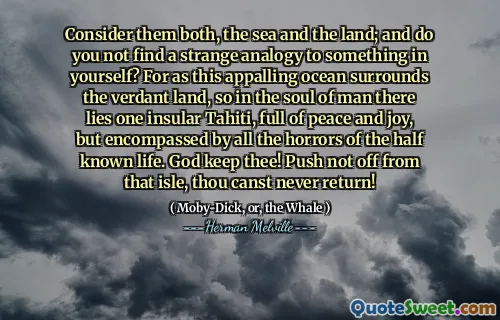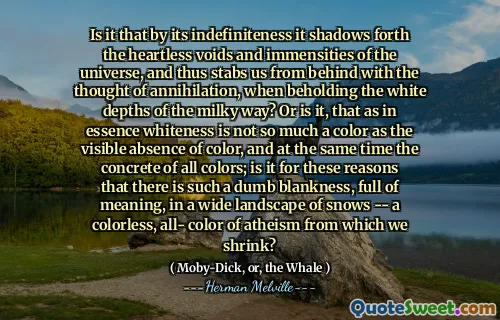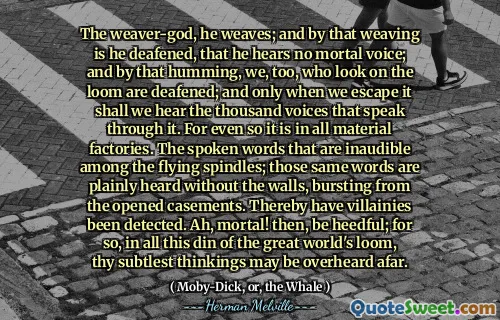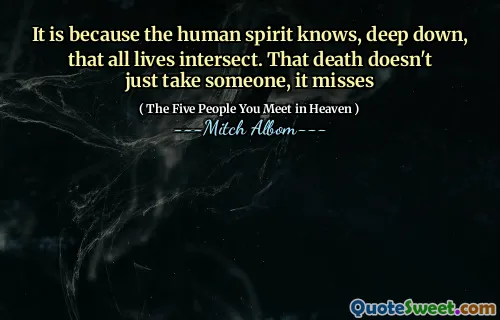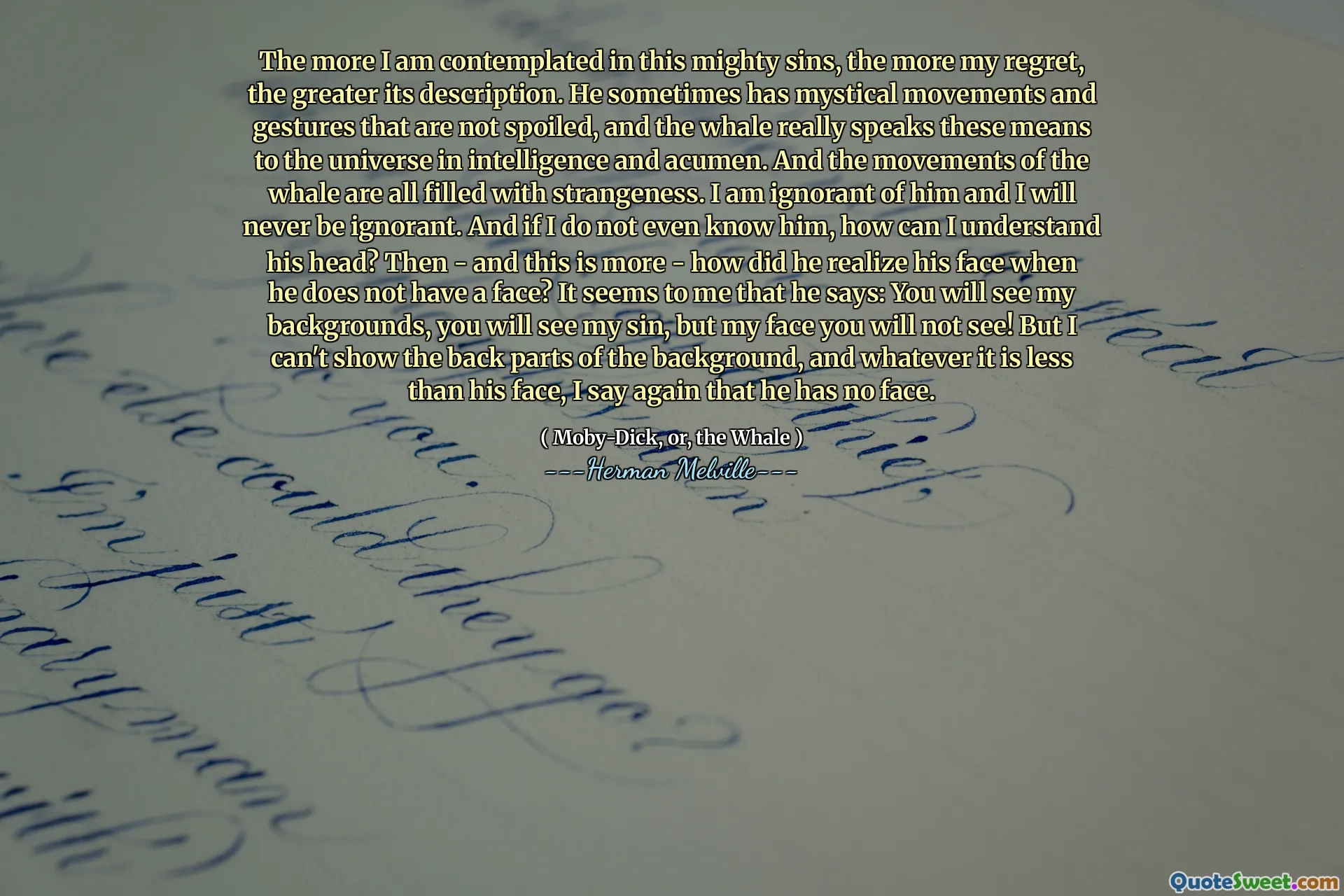
我对这种强大的罪过的考虑越多,我的遗憾就越多,它的描述就越大。他有时会有神秘的动作和手势没有被宠坏,而鲸鱼确实以智力和敏锐度为宇宙。鲸鱼的动作都充满了陌生。我对他一无所知,我永远不会无知。而且,如果我什至不认识他,我该怎么理解他的头?然后 - 这更多 - 当他没有脸时,他如何意识到自己的脸?在我看来,他说:你会看到我的背景,你会看到我的罪,但是我的脸你看不到!但是我无法展示背景的背部,无论它比他的脸少,我再说一次他没有脸。
(The more I am contemplated in this mighty sins, the more my regret, the greater its description. He sometimes has mystical movements and gestures that are not spoiled, and the whale really speaks these means to the universe in intelligence and acumen. And the movements of the whale are all filled with strangeness. I am ignorant of him and I will never be ignorant. And if I do not even know him, how can I understand his head? Then - and this is more - how did he realize his face when he does not have a face? It seems to me that he says: You will see my backgrounds, you will see my sin, but my face you will not see! But I can't show the back parts of the background, and whatever it is less than his face, I say again that he has no face.)
这句话反映了对罪的本质和生存神秘性的深刻遗憾和沉思,尤其是鲸鱼体现的。叙述者表达了对鲸鱼的不断发展的理解,将其视为一种通过神秘且奇怪的运动以自己独特的方式传达的存在。这种复杂性导致了人们对无知的认可,因为叙述者努力理解一个如此广阔和神秘的实体的深刻性质。
此外,叙述者在理解鲸鱼的本质方面的斗争是由他瞥见其罪和背景的想法,但以“面部”为代表的真实身份仍然被隐藏了。缺乏脸的鲸鱼的隐喻强调了人类理解的局限性以及人类与自然或生存之间的鸿沟。最终,这段经文探讨了感知的主题,未知的和奇妙的感觉,带来了这种宏伟的概念。
